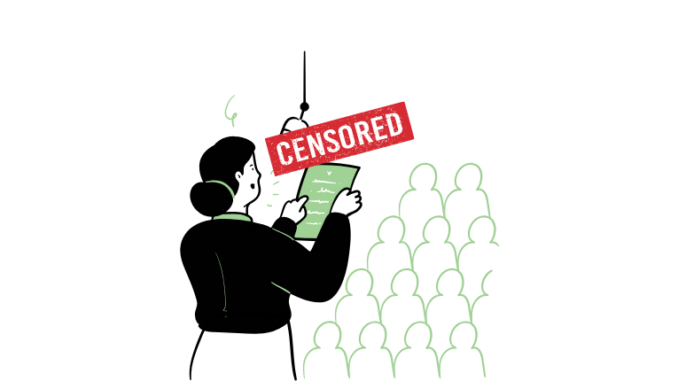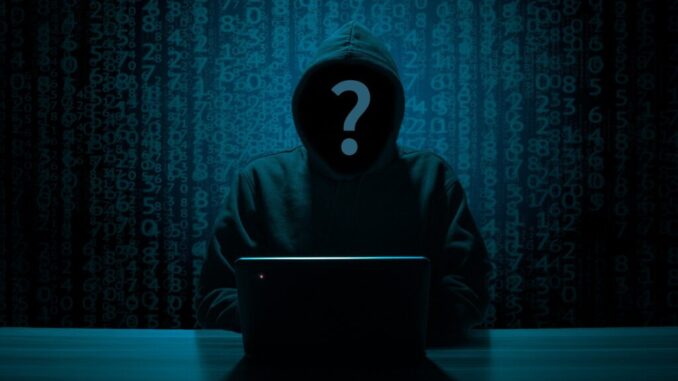
The Hidden Wiki, a popular directory on the dark web, has gained attention for its potential to provide access to uncensored information. However, censorship within the Hidden Wiki remains a topic of debate. This article delves into the concept of censorship on the Hidden Wiki, examining its existence, feasibility, and the factors influencing its presence or absence.
Understanding the Hidden Wiki
Before exploring the possibility of censorship on the Hidden Wiki, it is essential to understand its structure and functionality. The Hidden Wiki is a gateway to various websites and services on the dark web. It links diverse content, from forums and marketplaces to specialized communities and resources.

Censorship: Definitions and Challenges
Censorship involves controlling or suppressing information and restricting its dissemination or access. While censorship is prevalent on the surface web, the dark web is often regarded as a realm of freedom, shielded from external controls. However, assessing censorship within the Hidden Wiki requires considering various factors and challenges.
Decentralized Nature
The dark web operates on a decentralized infrastructure, making it challenging for any central authority or entity to exert control. Unlike the surface web, where centralized platforms and organizations govern content, the decentralized nature of the dark web complicates censorship efforts. The absence of a single point of control makes it difficult to implement comprehensive censorship mechanisms on the Hidden Wiki.
Lack of Regulation
The dark web, including the Hidden Wiki, operates in an environment devoid of regulatory oversight. The absence of legal frameworks and authorities monitoring activities on the dark web creates an environment where censorship becomes more difficult to enforce. The decentralized and anonymous nature of the dark web amplifies the challenges associated with implementing censorship measures.
Anonymity and Privacy
Anonymity is essential for the dark web, allowing users to experience without disclosing their identities. This significant aspect challenges censorship endeavors, as pinpointing and targeting specific individuals or entities responsible for objectionable content becomes arduous. Moreover, the strong emphasis on privacy within the dark web fosters a culture that cherishes freedom of expression, intensifying the complexities surrounding the topic of censorship.
Technical Complexity
The technical infrastructure supporting the dark web, such as the Tor network, adds another layer of complexity to censorship efforts. Tor’s encryption and routing mechanisms make monitoring and regulating specific content or users difficult. The distributed nature of Tor nodes and the anonymity they provide pose significant challenges to any attempts at censorship.
Existence of Censorship on Hidden Wiki
While the Hidden Wiki strives to offer a platform for unrestricted information, censorship may still occur. It is crucial to distinguish between external censorship and self-regulation within the dark web community.
External Censorship
External censorship pertains to efforts made by external entities, such as governments or law enforcement agencies, to exercise control or impose restrictions on access to particular content within the dark web, including the Hidden Wiki. Governments may enforce limitations or block certain websites or services, thereby curtailing the availability of specific information. Such external censorship is primarily enforced through internet service providers or targeting the infrastructure supporting the dark web.
Self-Regulation and Community Moderation
Within the dark web community, self-regulation and moderation play a role in maintaining quality and ethics. Community members and administrators of websites and forums on the dark web may enforce guidelines, remove objectionable content, or ban users who violate established rules. These measures aim to foster a safer and more dependable environment for users. However, it is essential to acknowledge that this self-regulation diverges from conventional notions of censorship. Instead, it operates as a mechanism to maintain community standards and norms.
Feasibility of Censorship on Hidden Wiki
Implementing widespread censorship on the Hidden Wiki poses significant challenges due to its decentralized and anonymous nature. While isolated cases of removal or restriction of content may occur, comprehensive censorship is inherently difficult to achieve. The lack of centralized control, technical complexities, and the emphasis on anonymity and privacy make it unlikely for broad-scale censorship measures to be effectively imposed on the Hidden Wiki.
Conclusion:
The concept of censorship on the Hidden Wiki remains a complex and debatable topic. The decentralized and anonymous nature of the dark web, including the Hidden Wiki, makes it challenging to implement comprehensive censorship measures. While instances of external censorship and self-regulation within the community may occur, achieving widespread censorship is impractical.
As the dark web continues to evolve, the debate surrounding censorship and its impact on platforms like the Hidden Wiki will persist. Gaining a comprehensive understanding of the nuanced nature of censorship within the dark web ecosystem is vital, as it allows us to consider its implications for crucial aspects such as freedom of information, privacy, and online communities.

Leave a Reply